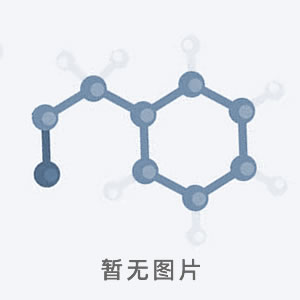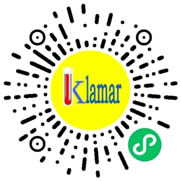本网站销售的所有产品仅用于工业应用或者科学研究等非医疗目的,不可用于人类或动物的临床诊断或者治疗,非药用,非食用。
Recombinant Human Monocyte Chemotactic Protein-3/CCL7 (CHO-expressed)
英文名:
Cas号:
Cas号:
检测信息查询

| 货号 | 规格 | 货期 | 库存 | 价格 | 促销价 | 订购 |
| 1308132752-10 μg | 0 | ¥3800 | ||||
| 1308132752-50 μg | 0 | ¥7800 |
| 别 名 | |
| Cas号 | |
| M D L | |
| 分子式 | |
| 分子量 | |
| 产品参数 | |
| 性状 | Recombinant Human Monocyte Chemotactic Protein-3/CCL7 (CHO-expressed) 是趋化因子和引诱剂,用于各种白细胞,包括单核细胞和嗜中性粒细胞。
Synonyms rHuMCP-3/CCL7; C-C motif chemokine 7; MCP3; SCYA6; SCYA7 ; 重组人单核细胞趋化蛋白-3/CCL7 (CHO表达) Species Human Source CHO Accession P80098 Gene ID 6354 Molecular Weight 10-18 kDa AA Sequence QPVGINTSTT CCYRFINKKI PKQRLESYRR TTSSHCPREA VIFKTKLDKE ICADPTQKWV QDFMKHLDKK TQTPKL Biological Activity The ED50 is <1.5 μg/mL as measured by CHO-K1/Gα15/hCCR1 cells (human Gα15 and human CCR1 stably expressed in CHO-K1 cells). Appearance Lyophilized powder. Formulation Lyophilized after extensive dialysis against PBS. Endotoxin Level <0.2 EU/μg, determined by LAL method. Reconstitution Reconstitute the lyophilized recombinant Human Monocyte Chemotactic Protein-3/CCL7 (CHO-expressed) (rHuMCP-3/CCL7) to 100 μg/mL using ddH2O or PBS. Storage & Stability Lyophilized recombinant Human Monocyte Chemotactic Protein-3/CCL7 (CHO-expressed) (rHuMCP-3/CCL7) is stored at -20°C. After reconstitution, it is stable at 4°C for 1 week or -20°C for longer. It is recommended to freeze aliquots at -20°C or -80°C for extended storage. Shipping Room temperature in continental US; may vary elsewhere. Background CCL7 is a chemotactic factor and attractant for various kinds of leukocytes, including monocytes and neutrophils. CCL7 is widely expressed in multiple cell types and can participate in anti-inflammatory responses through binding to its receptors to mediate the recruitment of immune cells. Abnormal CCL7 expression is associated with certain immune diseases. CCL7 alsoplays a pivotal role in tumorigenesis[1]. |
| 贮存 |
- Recombinant Rat MCP-1/CCL2 (HEK293-expressed)
- Recombinant Human Monocyte Chemotactic Protein-1/CCL2
- Recombinant Human Monocyte Chemotactic Protein-2/CCL8
- Recombinant Mouse MCP-2/CCL8
- Recombinant Human Monocyte Chemotactic Protein-3/CCL7 (CHO-expressed)
- Recombinant Mouse MCP-3/CCL7 (CHO-expressed)
- Recombinant Human Monocyte Chemotactic Protein-3/CCL7
- Recombinant Mouse MCP-3/CCL7
- Recombinant Human Monocyte Chemotactic Protein-4/CCL13

 小程序扫码下单
小程序扫码下单

 沪公网安备 31012002003054号
沪公网安备 31012002003054号